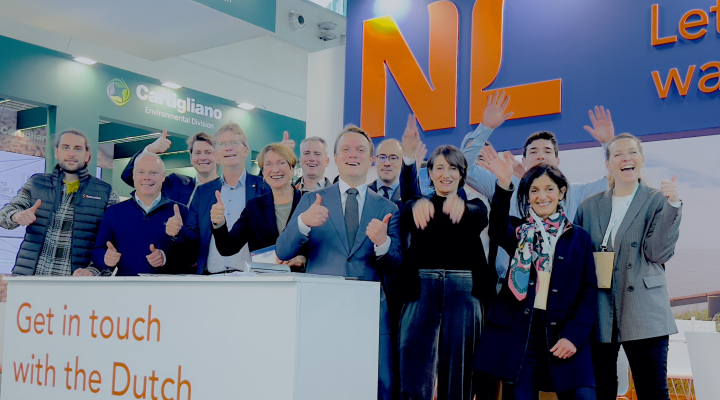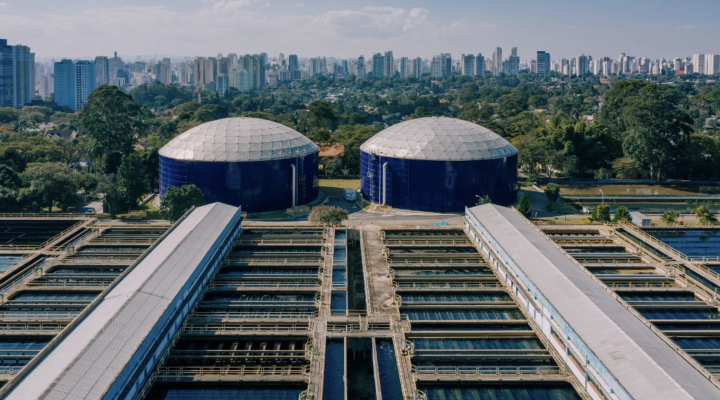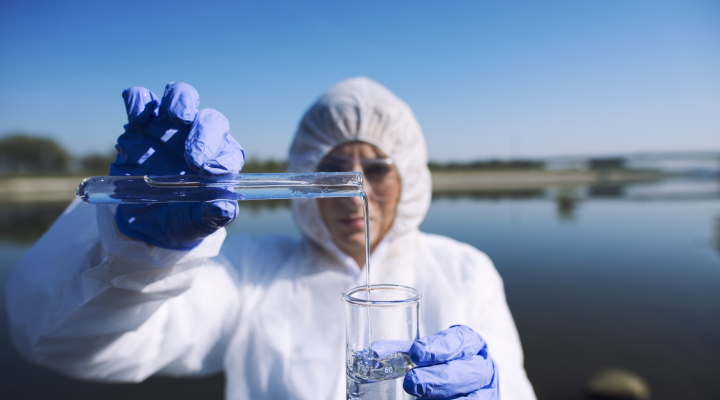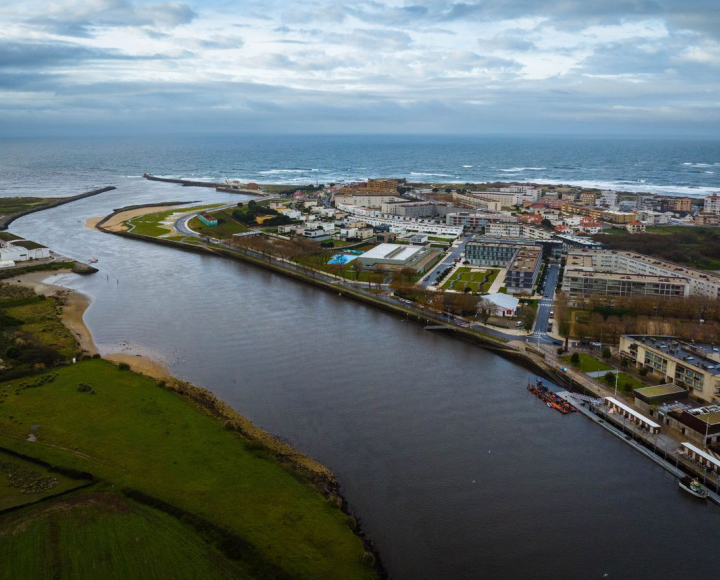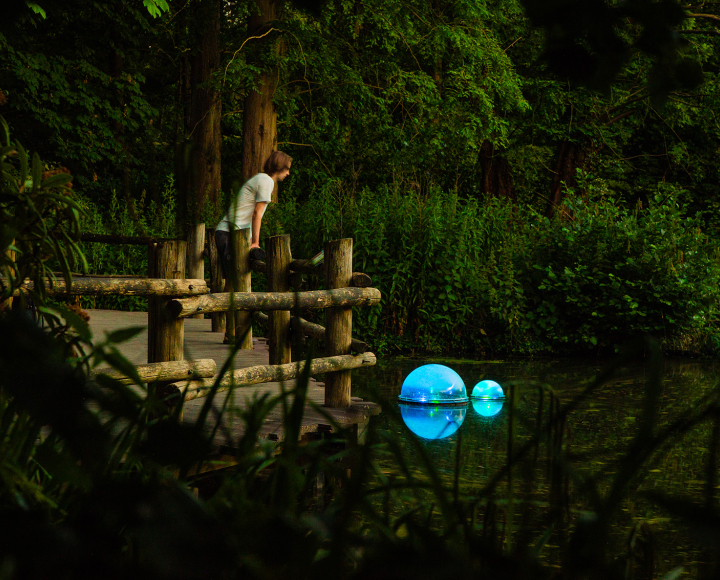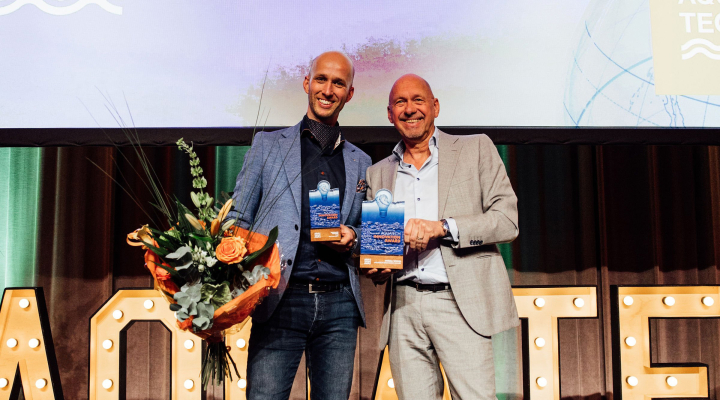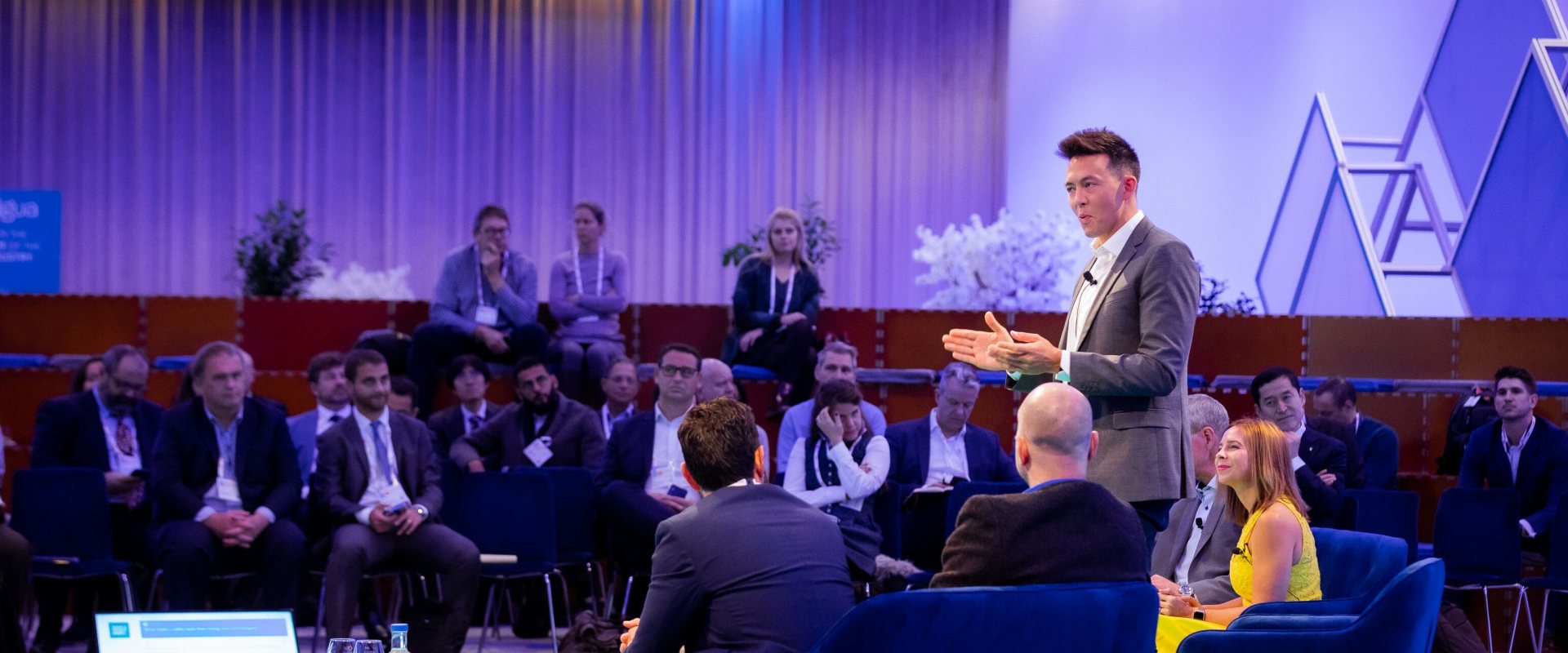
AIWW2019: Digital transformation masters the water sector quickly
‘In seven years we want to have a water treatment plant that is driven by data, instead of a process controller’, announced Ooi Kian Eng of PUB Singapore at the Aquatech Innovation Forum that kick started this year’s Aquatech Amsterdam on Monday 4 November.
The Aquatech Amsterdam water technology trade fair was one of the mayor events of the Amsterdam International Water Week that took place from 4 to 9 November.
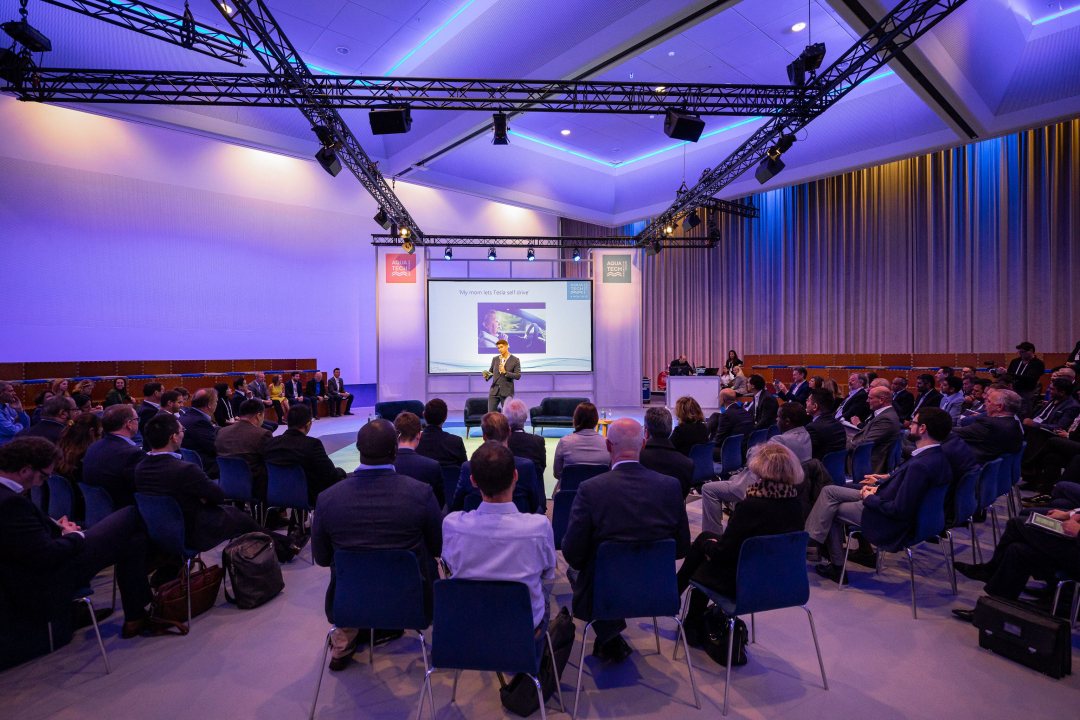

From data to information
The vision on a data-driven water treatment plant by Eng, illustrated that highly developed water utilities are mastering the digital transformation quickly. Sensors already collect huge amounts of real time data from the treatment process and artificial intelligence turns that data into information that can be used to continuously improve the process or anticipate on changing circumstances such as break downs of pumps or sudden change in flows due to extreme rainfall.
The next challenge will be the introduction of blockchain technology and machine learning. Computers will take over and make the process autonomously controlled. Experts at the forum all seemed to be convinced this will be the future.
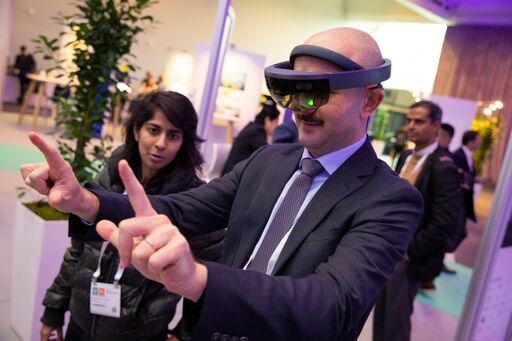

Digital twins
Buzz word at the forum was the digital twin, a digital replica of the real world that allows engineers to explore promising ideas, new applications or combinations of technologies. According to Robert Shaw of Anglian Water Services it allows many digital capabilities to come together that have been developed in isolation. ´General we make one decision on one asset, but now we can make an optimized decision against the whole backdrop of the water supply. By simulation we can quickly learn to better understand real time situations´, Shaw said.
As an example he mentioned the introduction of smart water meters by his company. It helped to make consumers more aware of the water use, resulting in a water saving of 5 percent. ´This is an important achievement as with the current water demand, we may be running out of water in the future.´
Level of maturity
Forum leader Tom Freyberg classified the water utilities in five levels of maturity: not started, basic, opportunistic, systematic and transformational. ‘Often people talk about hardware and software, when it comes to digitalisation’, he said, ‘often the people, the culture and skills test are left out of the discussion. Along the way of digitalisation we should not forget these are needed as well to adopt change’.
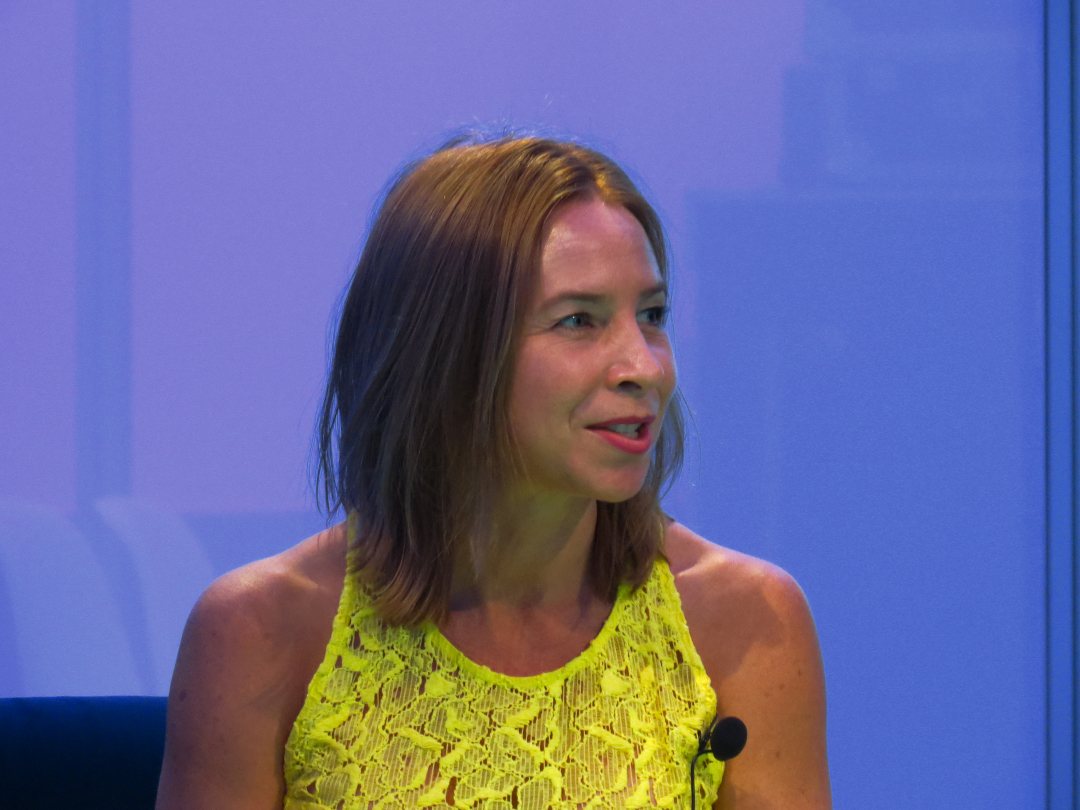

Integration of data silos
According to Rebekah Eggers, leader of IBM global water business, the digital revolution will be about ‘translating drips and drops, into bits and bytes'.
‘The water sector can use the digitalisation to learn more from the world around it’, she said. How to use the increasing amount of data coming from sensors to gain better insights to truly and fundamentally transform the way we work’.
Eggers foresees that water professionals will no longer be working in isolation and data silos will be integrated. ’The challenge is to merge this new intelligence in the way we work.’
New way of working
To gain new insights from data it is important to have a good structure to process the data, according to Eggers. Three important elements are pattern recognition, digital assistance and knowledge expertise. ‘There is no artificial intelligence, with artificial architecture’, she warned. ‘It is about how we train operators and stream the new intelligence into a new way of working’.
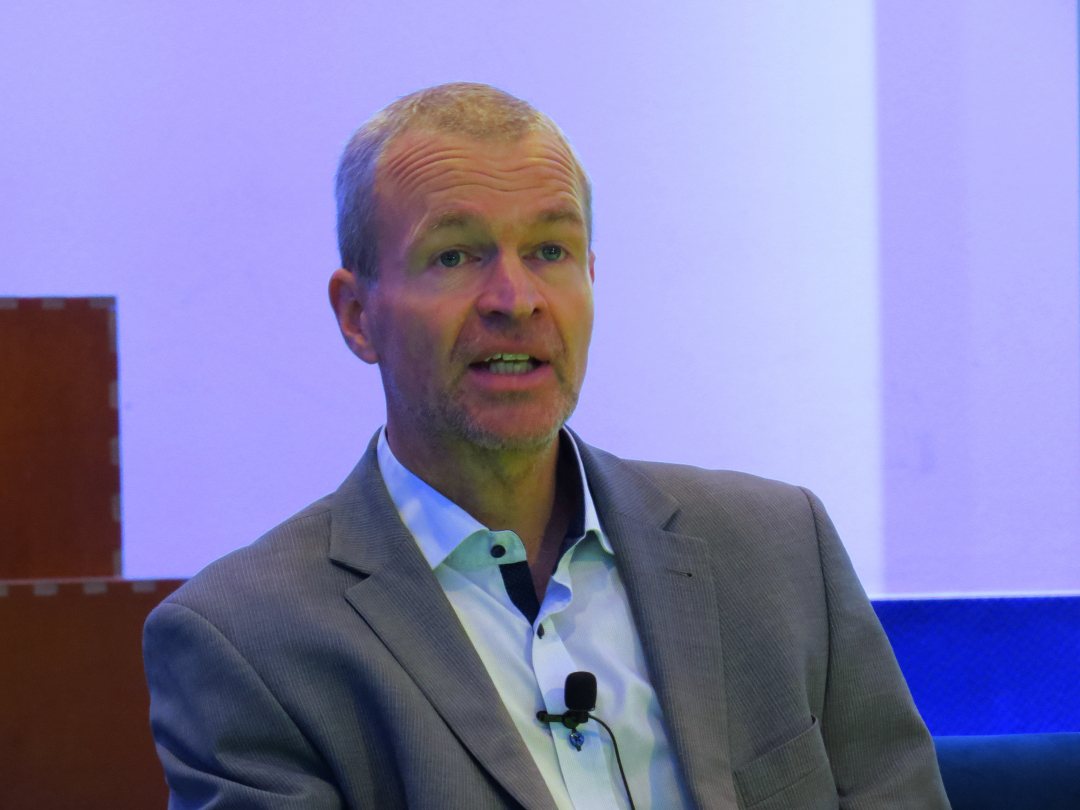

Energy surplus
Several examples of highly automated water treatment processes, were presented during the forum. Jesper Kjelds of the Danish water utility Aarhus Vand, mentioned the digitalisation of their waste water treatment plant led to an energy surplus. ´We already use real time data for several years, and we see a large potential for all our treatment plants. We are planning to build a complete new waste water treatment plant that will incorporate all our experiences in the design.´
Whole water cycle
Kjelds told that his company is working on the digitalisation of a more demand driven control of the whole water cycle from ground water extraction to drink water supply and waste water recovery.
´We want to be able to use real time data, to make real time decisions on our water flows for drinking water distribution, waste water discharges and extreme weather events including droughts', he said.




